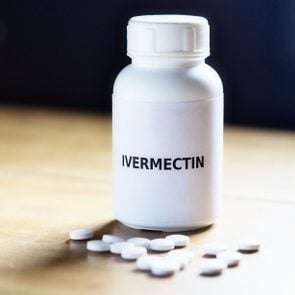Vitamin D, Your Immunity, and Covid-19: Infectious Disease Doctors’ Insights on the Link
Updated: Apr. 19, 2022
Immunity, Covid-19, and vitamin D: Science is showing an intriguing interplay
For decades, popular wisdom held that every vitamin had its specific, singular job. Vitamin A, found in carrots, could optimize your eyesight. Vitamin E? Great for glowing skin. Vitamin D, such as that found in cow’s milk, made your teeth strong and hair shiny…while plenty of us were convinced that if you wanted to fend off viruses, you needed O.J. and any other citrusy foods that would provide plenty of vitamin C. (Read 9 Foods With More Vitamin C Than an Orange)
More recently, not only are we growing more widely aware that each of these vitamins delivers a whole range of health benefits; but it’s also better understood that some of these vitamins share each other’s benefits. In specific, vitamin D has received a great deal of attention in the past couple years, among both researchers and the public. That’s likely thanks to this supernutrient’s seemingly unending list of abilities to boost overall health—especially its previously unsung association with improved immunity, which has come to the forefront during the Covid-19 pandemic.
That’s in part because one 2020 study in the Journal of the American Medical Association found that more than 80 percent of people hospitalized for COVID-19 had low vitamin D levels—while 2020 research published in the European Journal of Clinical Nutrition suggested that about one in three U.S. adults has insufficient vitamin D levels. Early in the pandemic, researchers noted the greatest link between vitamin D deficiency and severe cases of Covid-19, mainly in people who were overweight, elderly, or had weakened immune systems.
What’s at play here? A January 2022 peer-reviewed meta-analysis published in Reviews in Endocrine and Metabolic Disorders noted that several studies have suggested a significant association between vitamin D deficiency and an individual’s Covid-19 susceptibility and severity, even reducing the risk of mortality in some cases. Some studies over the past five years have suggested that key reasons for this might be that vitamin D plays a role in minimizing the risk of respiratory infections and regulating blood pressure and fluid levels in the body. This regulation may help reduce the potential for blood clots, which the researchers of the 2022 review stated “are a common and major cause of death among patients with COVID-19.”
So is the potential likelihood of getting Covid-19 directly caused by low vitamin D, or is it that individuals who are low in vitamin D tend to be less healthy overall? William Schaffner, MD, professor of preventive medicine and and infectious diseases at the Vanderbilt University School of Medicine, tells The Healthy: “Vitamin D deficiency is associated with Covid-19 severity, but research doesn’t show it’s the cause specifically.” Schaffner adds: “Your best bet is to assume vitamin D helps prevent Covid-19 and reduces the severity of symptoms, or at least is a healthy and safe option for strengthening your immune system to fight off disease.”
“How can I make sure I’m getting enough vitamin D?”
Deena Adimoolam, MD, an endocrinologist at Summit Health in New Jersey, tells us, “I recommend patients get checked for vitamin D deficiency, and supplement if levels are low.” She adds that vitamin D “has anti-inflammatory properties,” which may be yet another reason it could help raise immune response.
Here, Dr. Adimoolam highlights an important point: if you’re hoping to supplement vitamin D to ward off Covid-19 and other conditions, it’s important to speak with your doctor before you start. There are some nuances to this vitamin, including that it needs to be taken with a small serving of a healthy fat (think nuts, salmon, or avocado) for the body to best absorb it. (Read Dietitians Just Shared 6 Tips to Help Your Gut Absorb Vitamin D)
Also, the necessary vitamin D dosage can vary from person to person. For one, individuals who follow a plant-based diet may want to avoid vitamin D3 and instead opt for D2, which is made with plants. Further, individuals with certain diagnoses, such as those related to digestive health, may not appropriately absorb nutrition from food and therefore may require a high-dose vitamin D supplement.
We’ve broken this down for you and made it easy to shop: The 4 Best Vitamin D Supplements Depending on Your Specific Needs, from Registered Dietitians
On the other hand, for adults who are generally healthy, the National Institutes of Health recommends 600 to 800 international units (IU) of vitamin D per day. For adults over age 70, a doctor may recommend a higher dose—however, many experts warn against taking more than 1,000 IUs daily because of increased health risks, such as the potential for kidney stones to develop, among others.
And to Dr. Schaffner’s earlier point, in general, vitamin D deficiency is probably not the only cause of severe Covid-19 and other respiratory illnesses—but getting enough of it is one part of a holistic wellness routine. Other important regular practices to support your immunity are to get the Covid vaccine (which both Drs. Adimoolam and Schaffner encourage), as well as getting enough sleep, eating nutritious foods, reducing stress, and exercising regularly.
Read Does Yoga Strengthen Your Bones? An Orthopedic Surgeon’s Answer Might Surprise You
What else could taking vitamin D do for my health?
All the recent buzz around vitamin D has brought other possible benefits to light that were previously under-the-radar. A few of those include:
- A growing body of research shows an association between vitamin D and lower incidence of several urologic problems in adults, such as urinary tract infections and overactive bladder, as well as bladder and prostate cancers;
- Low vitamin D has been linked with neurodegenerative diseases, such as Alzheimer’s disease and multiple sclerosis;
- Low levels of vitamin D3 have been linked to increased inflammation in the digestive tract, which can result in irritation. This means—perhaps especially for patients who experience digestive and gastrointestinal disorders—sufficient vitamin D may help ease symptoms and discomfort.
Sign up for The Healthy newsletter for everyday wellness wisdom and much more, and follow us on Facebook and Instagram. Keep reading:
- Doctors Just Revealed 5 Fascinating Vitamin D Facts You Probably Didn’t Know
- Here’s What Happens to Your Skin When You Stop Eating Meat, Say Diet and Dermatology Experts
- The 12 Vitamin K-Richest Foods for Healthy Aging, from a Nutritional Biochemist
- The New Covid “Breathalyzer” Test: Specialists Explain Why It Could Be the Best Covid Test




